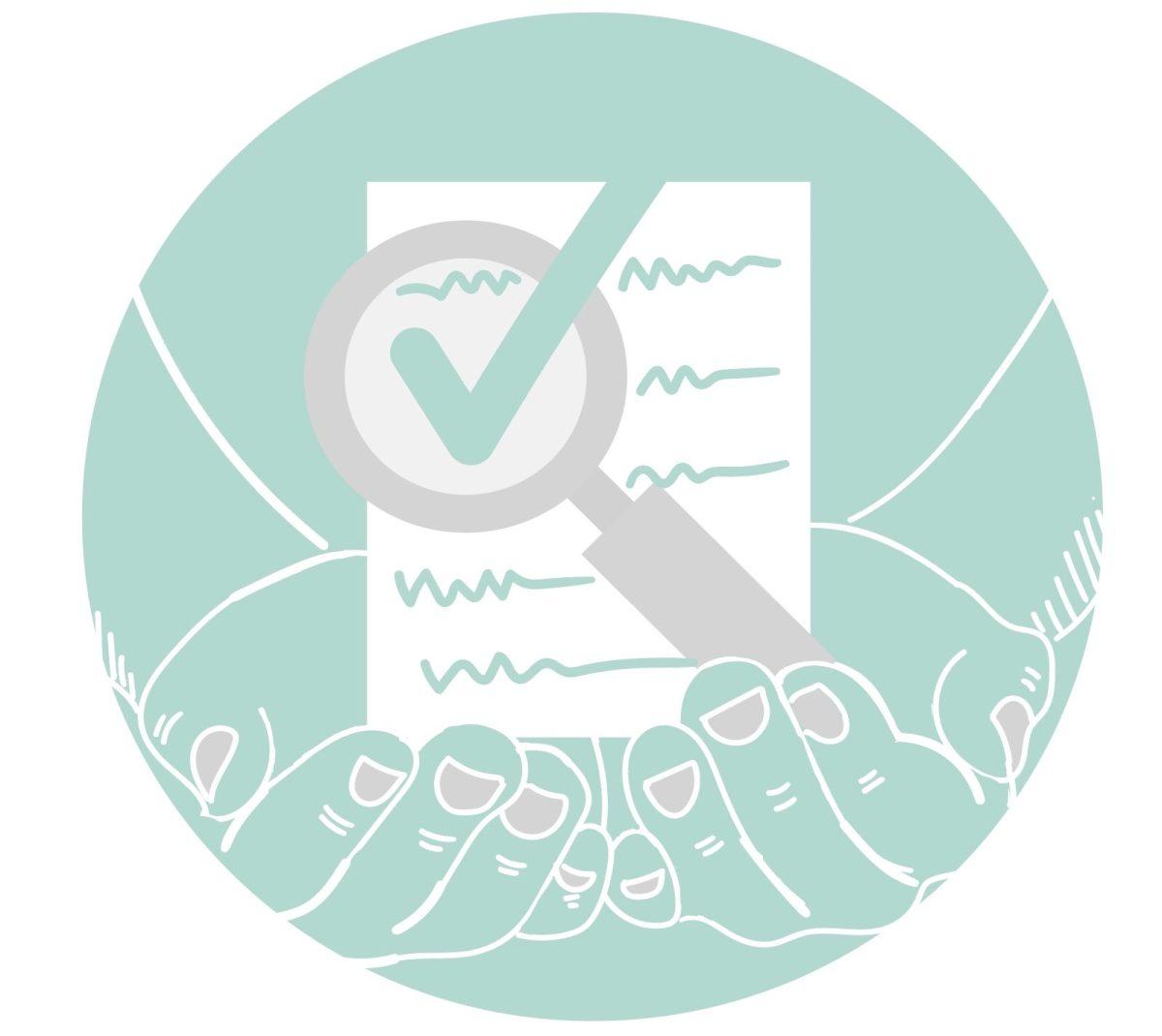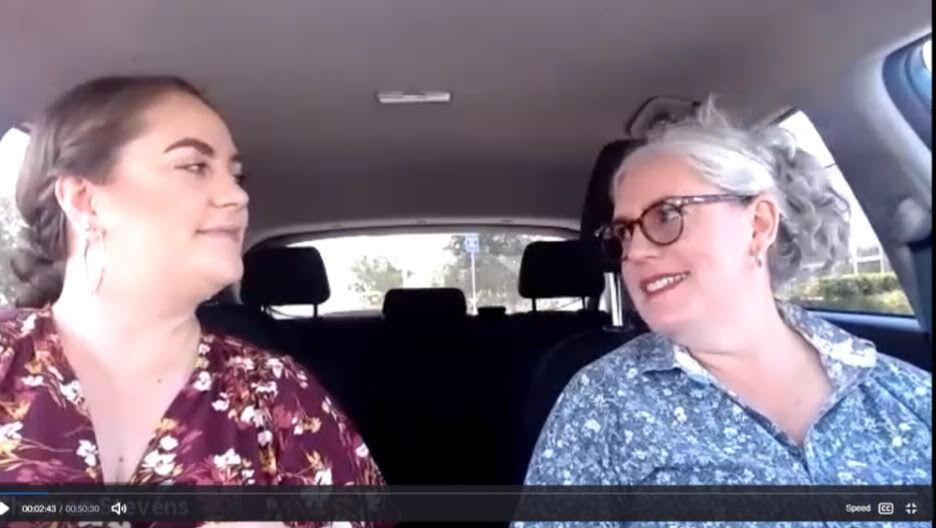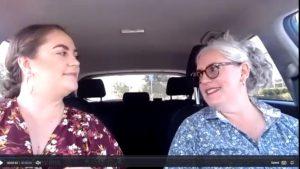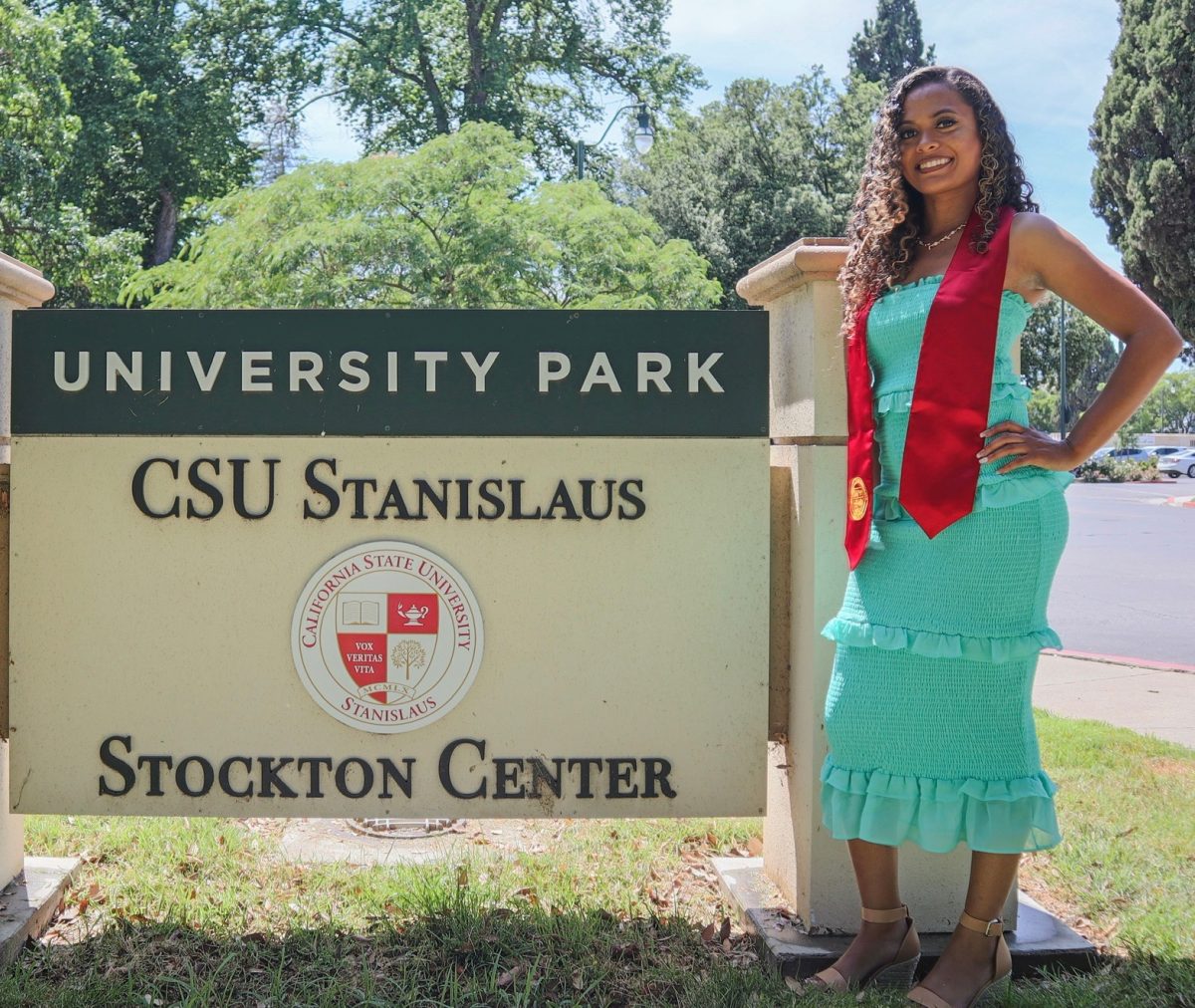The Signal celebrated World Press Freedom Day on May 3 with a guest visit from Stan State alumna and current Turlock Journal reporter, Angelina Martin.
World Press Freedom Day is celebrated to raise awareness of the importance of freedom of the press. During the meeting, Martin was able to share her experience as a reporter for the Turlock Journal as well as provide input on journalism’s essential role at both a local and an international level.
Martin, who graduated with a degree in Communication Studies and worked as an editor and reporter for the Signal, writes for multiple beats in Stanislaus County, including government, business, agriculture, education and community news.
During a discussion with Signal advisor Dr. Shannon Stevens, Martin explained why she finds reporting local news for her hometown so rewarding.
“You can have an impact, even though it’s a community paper,” Martin said.
When writing on issues that impact Turlock and surrounding communities, Martin explained, “It’s not my opinion, it’s just the community’s opinion and I’m parlaying that to them… The main thing about working at a small paper is you have to have an ear to the ground. You have to know the heartbeat of the community.”
Martin views her profession as one of public service. To her, being a journalist means highlighting the public’s voice and uncovering key issues impacting the community, and it is an essential role.
In regards to this sentiment shared by Martin, Signal reporter and editor Anthony Perkins (senior, Communication Studies) explains what being a student journalist means to him.
“Freedom of the press and freedom of expression is important because it allows individuals to have the right to share their opinion, break news without the fear of being censored, and hold those in positions of power accountable through reporting,” Perkins said.
This year, the theme for World Press Freedom Day was “Information as a Public Good.” The five-day conference held in Windhoek, Namibia included keynotes and interviews from journalists from around the globe. Topics discussed included journalists’ responsibility for providing factual information to the public, COVID-19’s effect in increasing violations against press freedom, and ways to support information literacy.
In reflecting on the necessity of press freedom, Martin states, “Without reporters, getting information and requesting it and being on the site of stories and on scene, there would be no accountability for anything.”
It is the journalist’s job, Martin argues, to shed light on concerns impacting the public which individual community members likely do not have the time or access to do themselves. To accomplish this, journalists’ rights must be recognized and community members should guard against misinformation.
“I think we already do a really good job at protecting journalists,” says Martin in terms of first amendment freedoms at a local and national level. “I just think people have forgotten we have our rights. They exist. They haven’t gone anywhere. It’s just knowing them as a journalist and knowing what you can and can’t do.”
“Also, let’s stop arresting journalists at protests,” Martin says, referring to CNN reporter Omar Jimenez’s arrest while covering the protests in Minneapolis last year.
Though she sees protections for a free press, Martin also recognizes that, in her line of work, it is impossible to avoid backlash.
“There’s always going to be backlash for any person who puts thought out into the world, no matter if it’s written, if it’s spoken, if it’s performed. There’s always going to be criticism,” Martin explains. “This is not a business for people who have thin skin.”
Both Martin and Perkins agree that there are responsibilities on both sides to maintain stronger protections for journalists. One, it’s important for the public to recognize journalists’ rights to report the news. Two, it’s important for journalists to understand what they can and cannot report.
Perkins comments on both the necessity of reporting and the potential dangers of avoiding censorship.
“Journalism in the U.S. can be a grab bag of pros and cons,” Perkins says. “On the pro side, we get to enjoy the legal protections granted to us to ensure that the press can cover pressing issues and topics.” However, he explains that there is a negative to this as some outlets have the potential to abuse this power through being biased and misreporting.
“There are certain things you [as a journalist] can and can’t do,” Martin says. “It’s nice that people go to school to become journalists and learn how to properly inform the public and that there’s a system to it or else we have what we’ve seen here in the past few years with fake news, just anyone making a website and writing things that aren’t true, so it’s never been more important… because it’s freedom of the press, not freedom to make fake press.”
What Martin is referring to is the issue of information literacy brought up during the World Press Freedom Conference. Misinformation, especially digital misinformation as it spreads quickly, is not journalism. It harms the public by providing false information, and it harms journalism itself, as people come to distrust and mistreat reliable journalistic sources.
With references to “fake news” and “alternative facts,” Martin claims that “it was like a perfect storm leading up to the pandemic.”
The International Press Institute has linked 473 global media freedom violations that are tied to the COVID-19 pandemic, including restrictions on access of information as well as arrests and charges against journalists and media organizations.
The solution to guarding against misinformation and disinformation is not to restrict press freedom or disregard reliable news sources. Martin provides her own step-by-step guide to determining the legitimacy of a story.
“These are the questions I always ask first: ‘Where did you read that?’ If you read it from Facebook, Twitter, Instagram, and you’re taking your information directly from that post and going around and telling people about the news that you read, that’s not news… your next step should be to go to Google.” Martin suggests specific sites like Snopes that are good at debunking false claims.
Taking steps to ensure the information you’re consuming and disseminating is accurate is one way to remember and support journalists and press freedom. Martin and Perkins describe and exemplify why it is necessary to treat everyday as World Press Freedom Day.
For more insight into Martin’s work, you can follow her Twitter account @angewrites.











